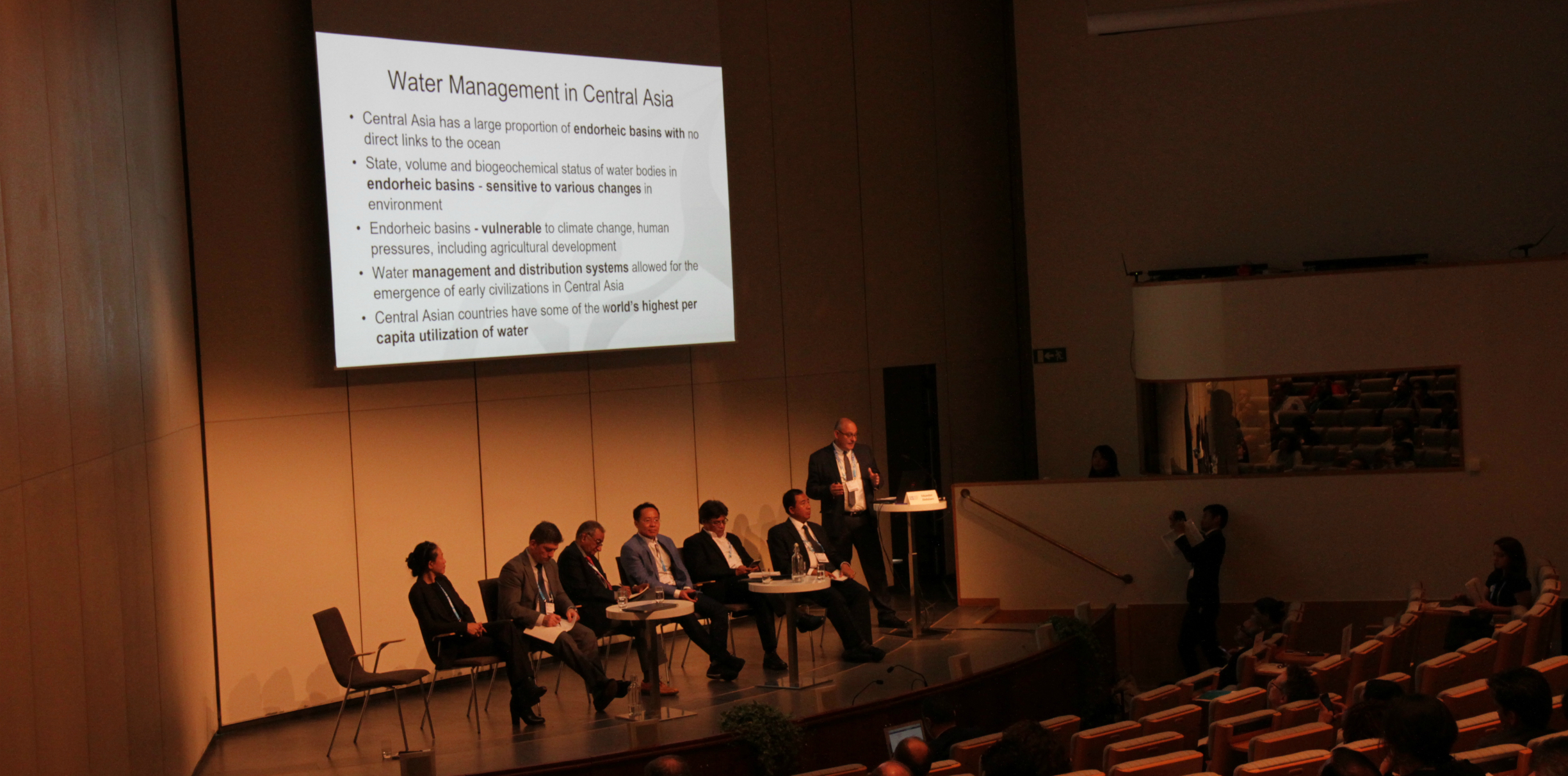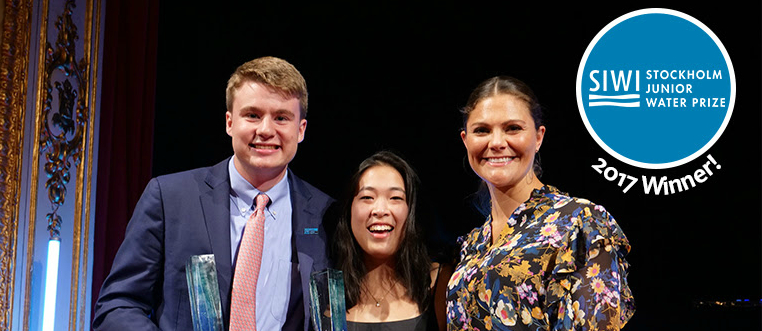August 29, 2017, Stockholm, Sweden
World Water Week and Central Asia - CAREC NEWS
The World Water Week hosted the panel session entitled “Asia Focus: Sustainable Wastewater and Fecal Sludge Management in Asia: Fit-for-Purpose Solutions”.
In most Asian developing countries, a significant amount of wastewater generated by households and industries is still being discharged into water bodies without any treatment. Although access to improved sanitation enables higher economic growth and contribute greatly to poverty eradication, resources and investment are still limited, as well as public awareness and willingness to pay for sanitation services.
The objective of this session was to elicit and propose effective ways to promote sustainable wastewater and sludge management in Asian developing countries. Based on the current situation in different countries, and the regulatory, institutional, and financial frameworks in place for sanitation, the issues, lessons learned, and solution options were discussed.
CAREC did an address on Agricultural drainage water management in Central Asia. Central Asia has a large proportion of endorheic basins with no direct links to the ocean, which are affected by economic and demographic pressure, with proposed total $2-3 million annual growth of GDP and expected growth of population to 90 million people in 2050.

Collecting and reusing return flow will benefit the environmental situation by avoiding discharge of salts, nutrients, and all kinds of agricultural chemicals into surface waters. Still, in some cases, drainage water contains too much salt and nutrients to be used safely for irrigation of fields at a lower elevation. Blending with lower-salinity source water can solve, or reduce this problem. The dissolved nutrients in drainage water can reduce the need for fertilization in the downstream fields where the water is reused. Return water reuse improves overall irrigation efficiency for surface irrigated farms.
The major challenge for solving the abovementioned issues is the water legislation of CA countries, which does not set the level of responsibility of land users for the withdrawal of irrigated land, consequences of over-irrigation, environment-friendly reuse of irrigation-unsuitable water, reconstruction of the drainage network, noncompliance with irrigation regimes, etc. To this purpose, the practical implementation of the sustainable drainage water management requires additional by-laws, guidance, and explanatory material.
Reports were also made by:
Myanmar’s WASH’ program
Htun Lwin Oo, Director General, Directorate of Water Resources and Improvement of River Systems (DWIR), Myanmar
Technical Lead for South Asia, Water, Sanitation, and Hygeine, BMGF
Dr. Roshan Shrestha, Bill and Melinda Gates Foundation (BMGF)
Faecal Sludge Management in South and South-East Asia
Dr. Thammarat Koottatep, Asia Institute of Technology (AIT)
Advancing Faecal Sludge Management at a Time of Transition: Examples from India
Mr. Ravi Narayanan, Governing Council Chair, APWF
Wastewater and Fecal Sludge Management for Sanitation and Sustainable Development – The Case of Japan
Pierre Flamand, Manager, JSC
Technology options for wastewater management and reuse in Central and West Asia: Case studies from Azerbaijan and Kyrgyzstan
Lu Shen, ADB
_______
Key messages of the whole session
1. Technologies – are not the only solution for the sanitation situations, there is a need also consider operational capacities. The specifics of a country shall also be considered.
2. Drainage Water formation in Central Asia’s irrigated areas is both key problem of and potential solution to the water management. There is a solution through applying long-existing technologies and solutions such as joint use with freshwater, ground water, and systematic monitoring.
3. There is a need for institutional support to trigger the process of addressing the issues of sanitation and FSM. Policy shall go first, technology – second. You only know what technology to use, when you know what to do with the treated wastewater next.

Junior Water Prize
Two students from the USA, Ryan Thorpe and Rachel Chang, received the 2017 Stockholm Junior Water Prize on Tuesday, for their novel approach to detect and purify water contaminated with Shigella, E. coli, Salmonella, and Cholera. H.R.H. Crown Princess Victoria of Sweden presented the prize at an award ceremony during World Water Week in Stockholm.
The students constructed a system that detects and purifies water contaminated with Shigella, E. coli, Salmonella, and Cholera more rapidly and sensitively than conventional methods. Their system detects as little as one reproductive bacteria colony per litre instantaneously and eliminates bacterial presence in approximately ten seconds. In contrast, conventional methods have detection limits of up to 1000 colonies and take one to two days. The students’ novel approach could prevent the contraction and outbreak of waterborne diseases and expand potable water throughout the world.
The Stockholm Junior Water Prize competition brings together the world’s brightest young scientists to A Diploma of Excellence was awarded to the students Aniruddah Chowdhury, Arnab Chakraborty, and Rituraj Das Gupta from Bangladesh. Their project researched more efficient ways to remove dyes from textile industry discharges, using a composite of titanium dioxide and cheap, locally sourced chemicals.
